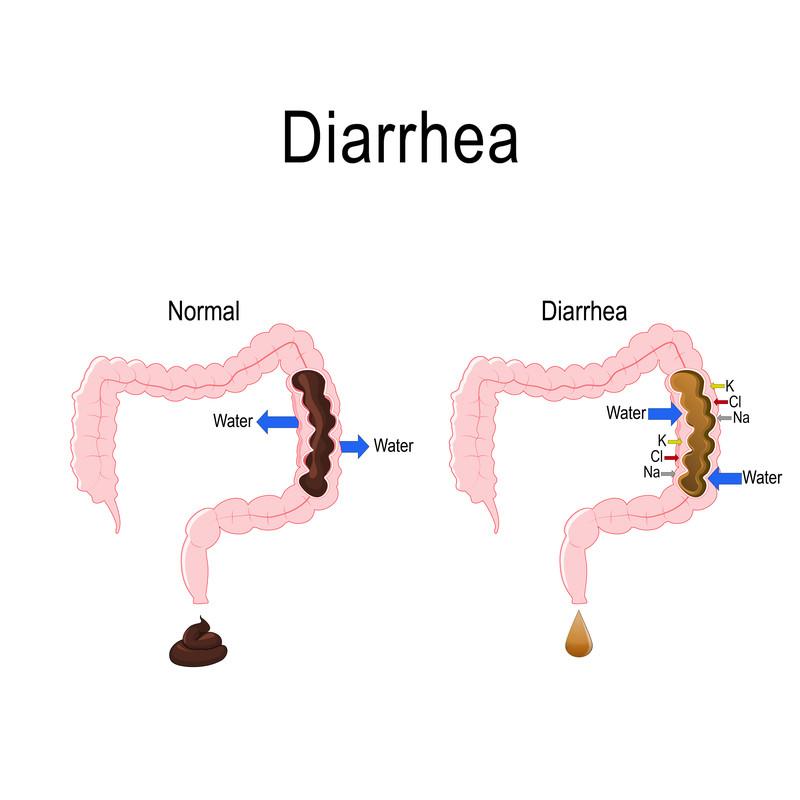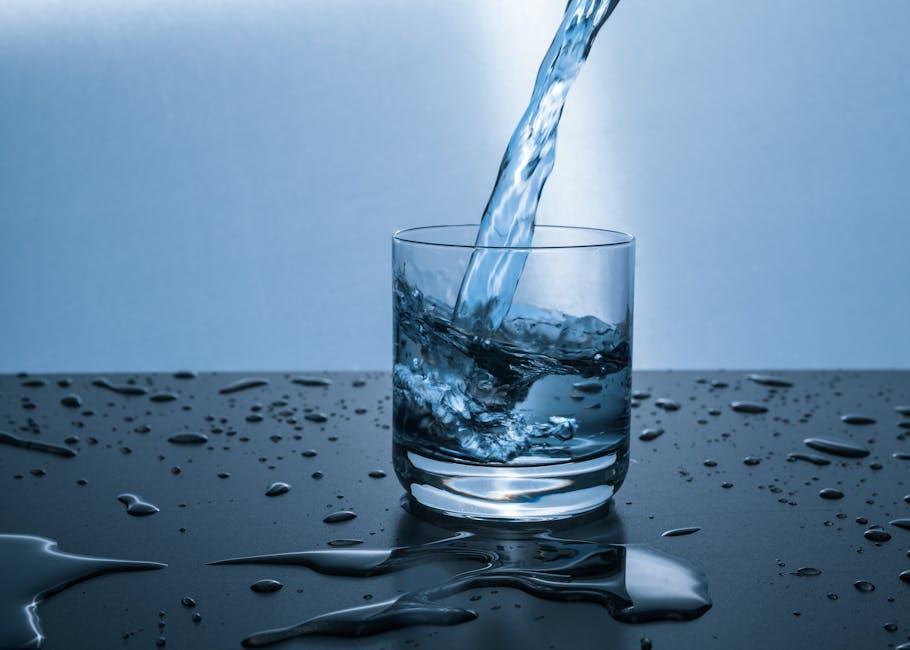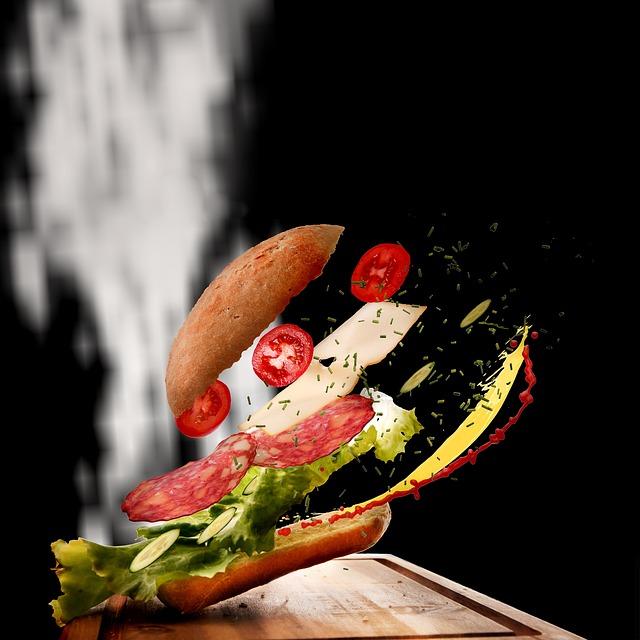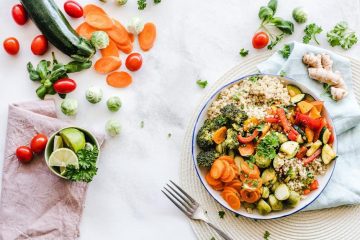Table of Contents
- Understanding Diarrhea and Its Triggers
- The Importance of Hydration in Managing Diarrhea
- Gentle Foods That Promote Recovery
- Probiotics and Their Role in Digestive Health
- Foods to Avoid When Experiencing Diarrhea
- Q&A
- Future Outlook


Understanding Diarrhea and Its Triggers
Diarrhea is primarily characterized by an increase in the frequency and fluidity of bowel movements. While it often resolves on its own, it’s crucial to understand what triggers it to help manage and prevent recurrences. Common causes include food intolerances, bacterial infections, and viral infections. Certain foods, particularly those that are spicy, greasy, or high in sugar, can exacerbate the condition, leading to more severe symptoms. Furthermore, stress and anxiety can also play a significant role in digestive disturbances, including diarrhea.
Recognizing specific food triggers is essential in managing symptoms. For many, dairy products can be problematic due to lactose intolerance, while others may find that gluten-containing foods upset their stomach. To assist in managing diarrhea, consider avoiding the following:
- Fatty and fried foods
- Spicy dishes
- High-fiber items like beans and certain fruits
- Dairy products, if lactose intolerant
- Caffeinated beverages
Hydration is key when dealing with diarrhea, as fluid loss can lead to dehydration. Along with water, oral rehydration solutions or broths can be particularly beneficial. Below is a simple guide for food choices during recovery:
| Food Type | Examples | Dietary Role |
|---|---|---|
| Gentle carbohydrates | White rice, plain pasta | Easy to digest and helps bind stools |
| Bananas | Ripe bananas | Rich in potassium, replenishes lost nutrients |
| Applesauce | Natural applesauce | Soothes the digestive tract, provides fiber |
| Clear broths | Chicken or vegetable broth | Rehydrates and replenishes electrolytes |


The Importance of Hydration in Managing Diarrhea
When dealing with diarrhea, one of the most critical aspects to focus on is maintaining adequate fluid levels in the body. Diarrhea can lead to significant fluid loss, which may result in dehydration if not addressed promptly. It’s essential to replenish lost fluids and electrolytes to keep the body functioning optimally. Water, clear broths, and oral rehydration solutions can play a vital role in achieving this goal.
To better understand the types of fluids beneficial during episodes of diarrhea, consider the following options:
- Water: The most basic yet crucial fluid for hydration.
- Clear Broths: These not only hydrate but also provide some nutrients.
- Oral Rehydration Solutions (ORS): Formulated to restore electrolytes and fluids easily.
- Coconut Water: A natural alternative rich in electrolytes.
- Herbal Teas: Soothing and hydrating options that can ease digestive discomfort.
Additionally, incorporating certain foods can complement your hydration efforts by providing essential nutrients and not exacerbating symptoms. The following table outlines some appropriate food options to consider during recovery:
| Food Item | Benefits |
|---|---|
| Bananas | Rich in potassium, helps replace lost electrolytes. |
| Rice | Gentle on the stomach and provides energy. |
| Applesauce | Easy to digest, provides pectin which can help bulk stool. |
| Toast | Plain, easy-to-digest carbohydrates. |


Gentle Foods That Promote Recovery
When dealing with digestive distress, it’s important to choose foods that are both soothing and easy on the stomach. Foods rich in soluble fiber, such as bananas, rice, and applesauce, can help absorb excess liquid in the intestines and firm up stool. These foods are often recommended because they are low in fat and high in nutrients, making them ideal for quick recovery. Additionally, gentle options like plain toast or oatmeal can provide the necessary carbohydrates without irritating the gut.
Including fluids in your diet is just as essential as solid foods. Staying hydrated plays a critical role in recovery. Opt for clear broths, herbal teas, or electrolyte drinks to replenish lost fluids. Avoid high-sugar and caffeinated beverages, as they can exacerbate symptoms. Here’s a quick look at some beneficial fluid options:
| Fluid Type | Benefits |
|---|---|
| Clear Broth | Helps maintain hydration |
| Herbal Tea | Soothes the digestive tract |
| Electrolyte Drink | Replenishes lost minerals |
Additionally, consider incorporating gentle proteins into your meals. Foods such as scrambled eggs, baked chicken, or tofu can be excellent choices that provide essential nutrients while remaining easy to digest. These proteins not only assist in muscle recovery but also support the immune system. Remember, avoiding dairy products until recovery is complete is often advisable, as they can sometimes trigger further digestive issues. selecting the right foods and maintaining hydration are key steps in promoting a swift recovery from digestive challenges.


Probiotics and Their Role in Digestive Health
Probiotics, often referred to as “good bacteria,” play a critical role in maintaining a balanced digestive system. These live microorganisms can help restore the natural balance of gut flora, particularly after it has been disrupted due to conditions like diarrhea. When ingested, probiotics compete with harmful bacteria, enhance nutrient absorption, and boost your body’s immune response, ultimately facilitating smoother digestion. Sources rich in probiotics include yogurt, kefir, sauerkraut, and kombucha, making them excellent additions to your diet, especially during digestive distress.
Incorporating probiotics can aid in the recovery from diarrhea by expediting gut healing. They work by producing short-chain fatty acids, which nourish the cells lining the intestines, promote mucus production, and aid in the rebuilding of the gut barrier. For those suffering from acute diarrhea, it’s beneficial to consume probiotic-rich foods regularly. Here’s a simple list of probiotics to consider:
- Lactobacillus rhamnosus – found in yogurt and supplements
- Bifidobacterium bifidum – accessible in fermented dairy products
- Saccharomyces boulardii – a yeast-based probiotic effective for diarrhea
It’s equally important to understand the different strains of probiotics and their specific benefits. For instance, certain strains are particularly effective in combating antibiotic-associated diarrhea, while others might help ease symptoms of irritable bowel syndrome (IBS). The following table outlines some common probiotic strains along with their notable benefits:
| Probiotic Strain | Benefits |
|---|---|
| Lactobacillus acidophilus | Supports gut health; helps with lactose digestion |
| Bifidobacterium longum | Enhances gut barrier function; reduces inflammation |
| Streptococcus thermophilus | Improves digestion; aids in lactose breakdown |


Foods to Avoid When Experiencing Diarrhea
When dealing with diarrhea, it’s crucial to be mindful of your diet as certain foods can exacerbate the condition. Fried and greasy foods, for instance, are notorious for triggering digestive issues. The high fat content in these foods can strain the digestive system further, making diarrhea more severe. It’s best to steer clear of indulgent favorites like french fries, fried chicken, and doughnuts during this time.
Another category to avoid includes dairy products. Lactose can be particularly challenging to digest when your system is already upset, leading to increased bloating and discomfort. Common dairy culprits such as milk, cheese, and ice cream should be eliminated from your meals until your digestive health improves. Opting for dairy alternatives may provide a gentler option.
Additionally, spices and high-fiber foods can contribute to irritability in the digestive tract. While fiber is essential in maintaining regular bowel movements, certain types, especially in excess, can worsen diarrhea. Foods like beans, whole grains, and cruciferous vegetables, such as broccoli and cauliflower, can lead to gas and bloating. It’s advisable to avoid these until your symptoms resolve, allowing your gut to recover.
Q&A
Q&A: Understanding Foods for Diarrhea Relief
Q1: What foods should I eat when experiencing diarrhea? A1: When dealing with diarrhea, it’s crucial to focus on easily digestible foods. The BRAT diet is often recommended, which includes Bananas, Rice, Applesauce, and Toast. These foods help firm up stools and are gentle on the stomach. You can also include plain boiled potatoes, cooked carrots, and oatmeal, which can be soothing and nourishing.Q2: Are there any foods I should avoid while I have diarrhea? A2: Yes, certain foods can exacerbate diarrhea and should be avoided. High-fat foods, dairy products, caffeine, alcohol, and spicy foods can irritate the digestive system. Additionally, foods high in fiber, like raw fruits and vegetables or whole grains, may worsen symptoms initially. Stick to bland, simple foods until you feel better.
Q3: How can hydration play a role in managing diarrhea? A3: Hydration is vital when you have diarrhea, as your body loses a lot of fluids and electrolytes. Drinking plenty of water, clear broths, and oral rehydration solutions can help replace these lost fluids. Avoid sugary drinks, which can sometimes worsen diarrhea. Herbal teas and electrolyte-rich drinks can also aid in recovery.
Q4: Is it beneficial to take probiotics during diarrhea? A4: Probiotics can be helpful in restoring the balance of healthy bacteria in your gut. Foods like yogurt with live cultures, kefir, and fermented foods can support your digestive health. However, it’s best to consult a healthcare provider before starting any new supplement, especially during digestive disturbances.
Q5: Can I eat fruits while I have diarrhea? A5: Some fruits can be beneficial, while others should be avoided. Bananas and applesauce are excellent choices because they’re low in fiber and can help firm up stools. However, raw fruits, especially those with high fiber content like berries or prunes, may aggravate your symptoms. Always opt for cooked or canned fruits without added sugar when choosing to eat fruit during a bout of diarrhea.
Q6: What about soups and broths? Are they good for diarrhea? A6: Yes, clear soups and broths are excellent options during diarrhea. They not only keep you hydrated but also provide necessary nutrients without stressing your digestive system. Chicken or vegetable broth can be particularly comforting and nutritious when you’re feeling unwell.
Q7: How long should I stick to these foods? A7: It’s usually advisable to follow a bland diet for a few days after symptoms subside. Gradually reintroduce other foods to monitor how your body reacts. If diarrhea persists for more than 48 hours, or if you experience severe symptoms, it’s essential to seek medical advice.
Q8: Can my diet help prevent future episodes of diarrhea? A8: A balanced diet rich in fiber, plenty of fluids, and a variety of fruits and vegetables can promote overall gut health, potentially reducing future incidents of diarrhea. Keeping a food diary to track what you eat may also help identify specific triggers that could lead to gastrointestinal upset.—Conclusion: Diarrhea can be uncomfortable and challenging, but knowing which foods to embrace or avoid can make a significant difference. Always listen to your body and consult healthcare professionals when needed to ensure a safe and speedy recovery.




0 Comments